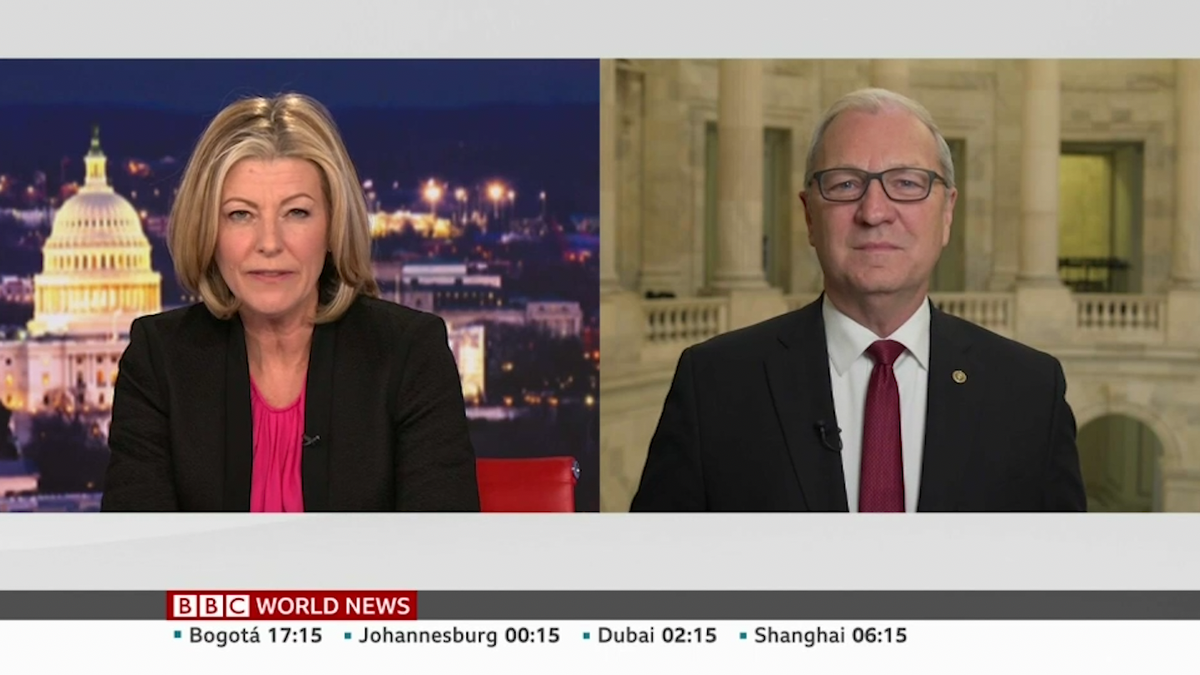Source: United States Senator Kevin Cramer (R-ND)
WASHINGTON – U.S. Senator Kevin Cramer (R-ND), member of the Senate Armed Services Committee, joined Laura Trevelyan on BBC last night to discuss the situations in Ukraine and Afghanistan. Excerpts and the full video are below.
On Ukraine:
“It’s impossible to see the type of build-up that is occurring along the Ukraine-Russia border without thinking [an invasion] could happen any day. Clearly, the amassing of both military personnel as well as munitions and staging areas give us great concern… As long as there hasn’t been a shot fired yet, I remain hopeful and optimistic there could be a diplomatic way out of this.”
“We’d like Germany to be stronger. Germany has been the weak link in this discussion, no question. I do think Russia’s aggression is unifying NATO and the European Union. Granted, we’re not all at the same level of concern or expression, but the European Union is clearly becoming stronger and more together. Not everybody is in the same situation. Obviously Eastern Bloc nations are different than the traditional European powerhouses. They all have different things at stake and we understand that. But the one thing that is common is they support – we all support – Ukraine in this standoff. There’s nothing that unites us more than a common enemy. Vladimir Putin is causing a lot more European leaders to strengthen their rhetoric and resolve.”
On Afghanistan:
“[Biden’s] pullout of Afghanistan was clumsy and it left a lot of vulnerable people – including allies and some American citizens, who are still in Afghanistan – but when you see the thousands of people that are suffering at the hands of the Taliban, it’s a stark reminder of the consequences are more than just military. The consequences are, at the very heart, humanitarian.”
“The United States has now donated something close to $800 million worth of humanitarian aid [to Afghanistan]. The challenge is obvious, and that is does it get to the people who need it the most? When you’re dealing with corruption at the very top, you can never be really certain. We need to be strong, obviously, but we also need to be generous.”
